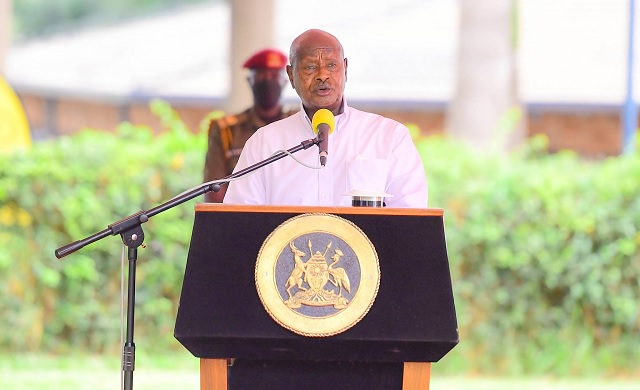
BoU data indicates a noteworthy increase in the value of Uganda’s exports to South Africa over the past decade, doubling to US$21.24 million
Kampala, Uganda | JULIUS BUSINGE | President Yoweri Museveni has extended an olive branch to corporate giants MTN Uganda and Stanbic Bank, forgiving them for their past actions.
This comes in the wake of the successful conclusion of the second leg of the Uganda-South African trade and investment summit held in Kampala starting Sept.5th -6th where 40 South African companies pledged their commitment to investing in the East African nation.
President Museveni’s magnanimous gesture marks a notable shift in his stance towards multinational companies operating in Uganda. In the past, he had criticized such corporations, including MTN Uganda and Stanbic Bank, for reaping substantial profits while seemingly neglecting the welfare of Ugandans.
MTN and Stanbic are listed on the Uganda Securities Exchange as some of the largest equities, with tens of thousands of Ugandans owning shares therein.
“I am now very happy and I forgive MTN all the past sins. I (also) forgive Stanbic all the past sins,” he said, adding that the companies can only make more profits when they help grow the economies in which they operate in.
He said the government is committed to ensuring that no products are exported unfinished including agriculture and mineral products.
The summit, a collaborative effort between MTN Uganda, key South African businesses, and local enterprises including Absa Bank Uganda, Sanlam, Nile Breweries Limited, Stanbic Uganda Holdings Limited, DFCU Bank, MultiChoice Uganda, and Woolworths, sought to fortify trade and investment ties between the two nations.
Building upon a similar event earlier in the year held in South Africa, President Museveni had implored South African companies to invest in critical sectors like agro-industrialization, manufacturing, and tourism, to bolster Uganda’s economy and generate employment opportunities.
Evelyn Anite, the State Minister of Finance for Investment and Privatization, revealed that several South African firms, including prominent names like Tiger Brands, SADC Grains, Radco Holdings, and Brand South Africa, have expressed their intent to establish businesses in Uganda, underscoring the significance of the collaboration.
Ralph Mupita, the Group President and CEO of MTN Group, pledged ongoing support for Uganda’s economic growth. This commitment, he said, extends to financing locally produced smartphones to enhance internet penetration a move that could catalyze further economic development.
New MoUs signed
In parallel developments, the Uganda Industrial Research Institute (UIRI) entered into a memorandum of understanding with South African firm Hexagon Engineering, to produce electricity transformers locally, thereby reducing imports. Additionally, the Uganda Investment Authority inked an agreement with Invest South Africa, aimed at strengthening cooperation and promoting trade and investment.
Recent data from the Bank of Uganda indicates a noteworthy increase in the value of Uganda’s exports to South Africa over the past decade, doubling to US$21.24 million. In contrast, South Africa’s exports to Uganda dwindled from US$251.6 million to US$127.6 million during the same period.
Uganda’s exports to South Africa encompass a diverse range of products, including cotton, gold, fish fillets, tobacco, coffee, and fresh flowers. Conversely, South Africa’s exports to Uganda span machinery, vehicles, plastics, chemicals, electronics, parts and accessories, petroleum, live animals, books and newsprint, textiles, footwear, aircraft, and household goods.
 The Independent Uganda: You get the Truth we Pay the Price
The Independent Uganda: You get the Truth we Pay the Price



